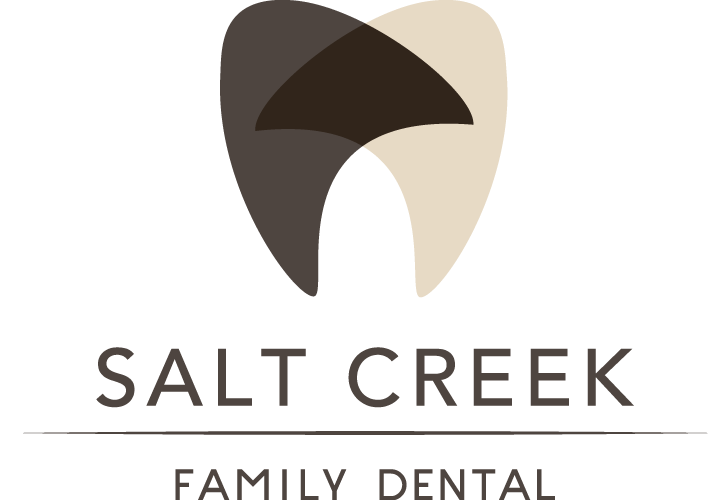Dental services
Bridges and crowns
Depending on how many teeth are damaged, crowns or bridges offer an excellent alternative to restoring your smile and overall oral health. Missing or broken teeth create gaps that can cause your other teeth to shift, leading to decay, TMJ disorder, or gum disease. At Salt Creek Family dental, we take a personalized approach and conduct a detailed examination before recommending a crown or bridge treatment.
Dental bridges and dental crowns are two very common restorative dental procedures performed at our office in Hinsdale, IL.
Dental bridges are used to replace one or more missing teeth by attaching a false tooth to adjacent teeth with crowns. Bridges can be made of a variety of materials, including metal, porcelain, or a combination of both.
Dental crowns are used to cover and protect damaged or weakened teeth. A crown fits over the entire tooth, like a cap. Crowns can be made of metal, porcelain, or a combination of both.
Both dental bridges and dental crowns can help to improve your smile, restore function to your teeth, and prevent further damage.
Here are some of the benefits of dental bridges and dental crowns:
Improved appearance: Dental bridges and crowns can help to improve the appearance of your smile by filling in gaps and restoring the natural shape and color of your teeth.
Restored function: Dental bridges and crowns can help to restore function to your teeth by allowing you to chew and speak normally.
Prevented damage: Dental bridges and crowns can help to prevent further damage to your teeth by protecting them from wear and tear.
If you are considering dental bridges or dental crowns, be sure to schedule a consultation with Dr. Celeste at our dental office in Hinsdale, IL. Dr. Celeste can help you to determine the best treatment option for your individual needs.
Advantages of Dental Bridges
Bridges are dental prosthetic devices that serve as permanent natural teeth replacement. Bridges are sometimes referred to as fixed partial dentures, because they are cemented to existing natural teeth or implants. Because they are custom-made, bridges are barely noticeable and blend with natural teeth.
Types of fixed dental bridges include conventional fixed bridges, implant bridges, cantilever bridges and resin-bonded bridges. Unlike a removable bridge, which you can take out and clean, only your dentist can remove a fixed bridge. Porcelain, gold alloys or combinations of materials are usually used to make bridge appliances.
Dental bridges can help you to chew, speak, and smile normally again. They can also improve the appearance of your smile by filling in gaps between teeth. Other advantages are:
Maintaining facial structure: Missing teeth can cause the jawbone to atrophy, or shrink. This can lead to a sunken appearance of the face. A dental bridge can help to maintain facial structure by supporting the jawbone.
Relatively non-invasive procedure: Dental bridges are a relatively non-invasive procedure compared to other tooth replacement options, such as dental implants.
Durable and long-lasting: Dental bridges can last for many years with proper care and maintenance.
Overall, dental bridges are a safe and effective way to replace missing teeth. They can offer a number of benefits, including improved function, appearance, and oral health.
Here are some additional advantages of dental bridges:
Relatively affordable: Dental bridges are typically less expensive than other tooth replacement options, such as dental implants.
Relatively quick and easy procedure: Dental bridges can be placed in as few as two appointments.
Easy to care for: Dental bridges can be brushed and flossed just like natural teeth.
If you are considering dental bridges to replace missing teeth, be sure to talk to your dentist about the pros and cons and whether this is the right option for you.
Advantages of Crowns
Crowns are a type of cap that’s cemented over a damaged tooth and helps to prevent future fractures of the tooth. Crowns are made from tooth colored materials, typically porcelain or zirconia, and can restore a tooth's function and appearance. In special circumstances, you may choose to have a gold crown fabricated. When decay in a tooth has become so advanced that large portions of the tooth must be removed, crowns are often used to restore the tooth.
Crowns are also used to attach bridges, cover implants, prevent a cracked tooth from becoming worse, or when an existing filling is in jeopardy of becoming loose or dislocated. Sometimes crowns are used to improve the appearance of a discolored or stained tooth.


